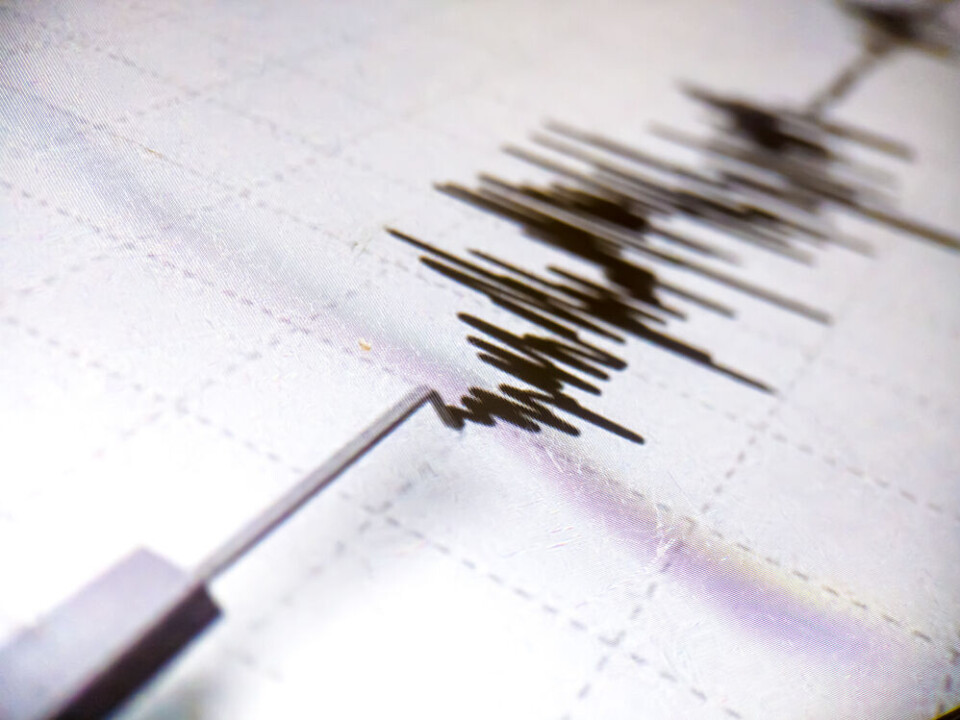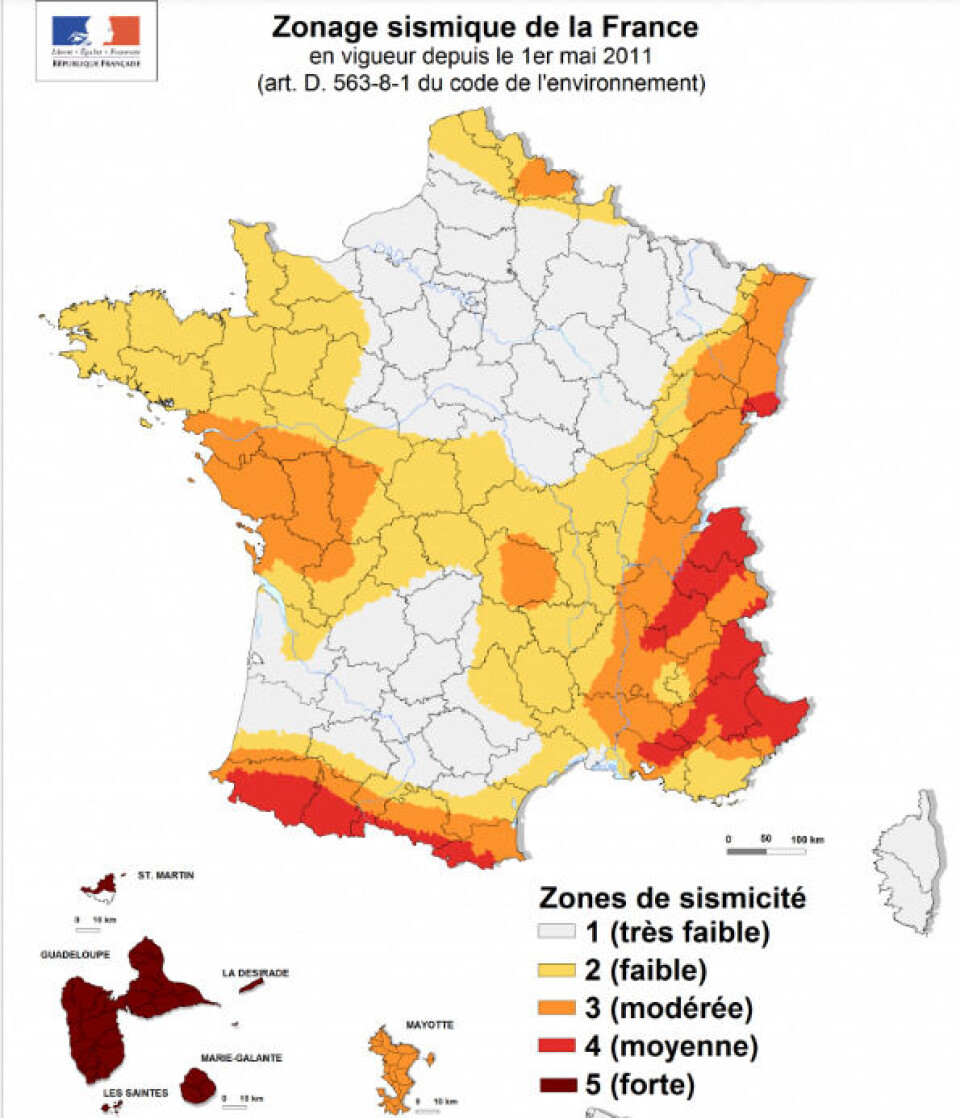-
Magnitude 3.3 earthquake hits Finistère – residents report loud boom
A second earthquake in a nearby commune followed a few hours later
-
Earthquake recorded in south-east France
Noise and vibration wakes Vaucluse residents after magnitude 3 quake hits near Avignon
-
Two earthquakes felt in France at opposite ends of country
The epicentre of quakes were shallow making them felt despite their low intensity
What and where is the chance of a large earthquake in France?
The site of ancient mountain ranges - such as in Normandy and Brittany - can be a factor

The recent earthquake in Morocco, in which thousands of people died, has led to concerns over whether France could also be at risk of a significant earthquake. Like Morocco, France has not generally been considered a high risk area.
What causes earthquakes?
The release of pressure that builds up along fault lines causes earthquakes. The release of this pressure causes sudden movements, which in turn release energy in the form of seismic waves.
How do earthquakes happen?
— Aoude (@AoudeA) February 8, 2023
The Earth’s surface, or crust, is made up of giant slabs of rock called tectonic plates. These plates are constantly moving along cracks where they meet, called fault lines. As plates grind together they can get stuck, causing pressure to build up. pic.twitter.com/SM06emEqml
There are many factors that determine how destructive an earthquake is, including how deep underground it happens.
As a rule, the closer the earthquake is to the surface, the more devastating it is. For example, the earthquakes that happened in Turkey and Syria earlier this year occurred just 18km under the Earth’s surface.
The seismic waves did not have far to travel before they reached the surface and therefore the impact was severe.
Read more: June earthquake in France: Who is in official natural disaster zone?
Earthquake risk in France
Earthquakes regularly happen in France, both on the mainland and in its overseas territories, data on the French government website géorisques shows.
However most of these are of low magnitude even though some in recent years have caused damage to buildings, including at Annecy in south-eastern France and Saint-Paul-de-Fenouillet in the south, both in 1996.
The last earthquakes in France to cause fatalities were in 1967 at Arette in southern France and in 1909 at Lambesc, south-eastern France.
The French government published a map in 2011, which is still valid and addresses the risks of earthquakes in France and the overseas territories using a 1-5 scale. Level 1 means the earthquake risk is very low and level 5 means there is a high risk.

Credit: MEEM /ecologie.gouv.fr
The map shows that about half of France - around Paris and in the Aquitaine region in the south west - are at very low risk of earthquakes.
Central France is considered a low risk area however the risk increases in the areas close to the German, Swiss, Italian and Spanish borders near the Alp and Pyrenees mountain ranges.
Essentially tectonic plates can be found where there are mountains and where there are tectonic plates there is a greater risk of earthquakes.
This is also the reason why there is a higher risk in the west of the country. The former Basse-Normandie region, which today groups the Calvados, the Manche and the Orne departments together, is situated on an ancient mountain range, Armorican Massif.
This mountain range spreads across modern day Brittany, western Normandy and down into the Pays de la Loire region.
Although the risk of earthquakes here cannot be ignored it is low, said Daniel Amorese, a seismologist at Caen University in Normandy.
Mr Amorese told French news outlet France 3 that the risk of floods and coastal erosion in this area is far more significant than that of earthquakes.
Read more: Fresh details emerge about cost and impact of French earthquake
Building regulations
One of the biggest issues when an earthquake occurs is that buildings can collapse. This damages infrastructure and can crush inhabitants inside. France has regulations aimed at preventing buildings from collapsing during earthquakes.
Samuel Auclair, a seismic risk engineer, told French website capital.fr that these regulations have been in effect since the 1970s and have successfully ensured that buildings which meet them, although damaged during an earthquake, do not collapse.
The regulations in place throughout France differ from area to area, depending on the earthquake risk. As such they are more stringent in Nice, for example, where the risk is higher, than in Paris, a low risk area.
Mr Auclair said that the regulations are not retrospective, only applying to new builds.
In the overseas department of the Antilles, a French department with the highest risk rating, the government is adapting older strategic buildings, such as schools and hospitals, to survive earthquakes.
This is not the case in all of France where the risk is considered relatively low.
Read also
‘This is the third earthquake I have felt in Charente in a decade’
‘Big bang and whole house shuddered’: Earthquake rocks western France
























